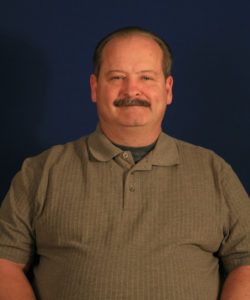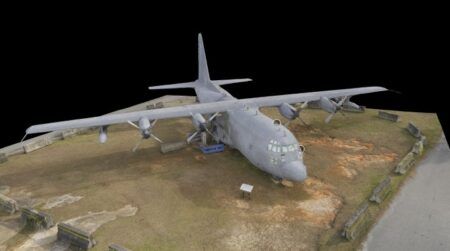 The standardization of processes is a fundamental part of any successful industrial supply chain. A major part of building and maintaining standards for non-destructive testing (NDT) in the aerospace sector has been Nadcap.
The standardization of processes is a fundamental part of any successful industrial supply chain. A major part of building and maintaining standards for non-destructive testing (NDT) in the aerospace sector has been Nadcap.
Compliance with Nadcap audits has become a mainstay for suppliers and OEMs around the world
since the standard was launched in 1990. Mark Aubele is senior program manager for NDT at the US-based Performance Review Institute (PRI) and talks here to Aerospace Testing International about how and why the standard has been successful and what future changes to it may entail.
What is NADCAP and what is its role in the aerospace sector?
Nadcap is a collaborative industry approach to ensuring compliance with special process industry standards and customer specifications throughout the aerospace and defense global supply chain. All the major aerospace and defense companies work together to identify critical processes that require oversight through the Nadcap audit process. The processes to be checked are established by technically focused task groups made up of experts who approve auditor candidates, develop audit questions and make the final decision on accreditation.
The first and largest of these groups is the NDT Task Group, which accredits the testing processes of magnetic particle, liquid penetrant, ultrasonic, radiography, digital radiography, and remote image and film viewing. There will be questions specific to each area included in the audit checklist.
How does Nadcap stay current with NDT technologies and processes?
We are always at the industry’s door and that is how we obtain the latest information on an ongoing basis. This ensures that we meet needs in all areas, including new technologies and processes. Industry input is vital to ensuring that the Nadcap accreditation continues to be relevant and valuable. We also monitor industry trends and share any insights as appropriate.
What happens during an audit?
First, let me clarify that there is a significant difference between a Nadcap audit and any other NDT audit or, for that matter, any general quality and/or ISO standard audit. With those types of audits, generic quality questions may be used regardless of the nature of the work being audited.
But the Nadcap audit has been developed by the industry to meet its requirements and that includes questions developed from industry standards like the ASTM, AMS, NAS 410 and others as well as Nadcap subscriber specifications and requirements.
The Nadcap audit is more in-depth than other NDT or quality audits, and every nonconformance initiated requires a thorough response.
Upon arrival at the audit site, the auditor will conduct an opening meeting with key personnel to ensure that the audit scope is understood by everyone involved. A site tour may also be conducted to orient the auditor. On average, an NDT audit takes three days, depending on the number of methods audited, but it may require more than six days.
The NDT checklists are available free of charge online at www.eAuditNet.com. All auditees are expected to conduct a self-audit using those checklists prior to the Nadcap audit as part of their pre-audit preparation, so there should be no surprises during the audit.
In 2018 we conducted almost 6,000 audits around the world. Approximately half of the audits that take place are conducted in the Americas, followed by Europe and then in Asia.
Of these, almost 1,300 are NDT audits, making non-destructive testing the largest area for Nadcap. With some accreditations being valid for longer than a year, there are currently 1,865 companies holding Nadcap NDT accreditation featured in the online Aerospace Qualified Manufacturers List on eAuditNet.
Why should people prioritize accreditation?
Nadcap continues to grow in technical scope and global reach. Nadcap accreditation is globally recognized as a key indicator of a company committed to excellence and is a trusted symbol of compliance.
Any company that wants to satisfy its customers, retain and win new business and be assured that its output is of the highest quality holds Nadcap accreditation. Accreditation guarantees that a company will be featured on the online Aerospace Qualified Manufacturers List, which is used by procurement and quality executives, among others, to source suppliers and form part of their risk-mitigation strategy.
What is the main benefit of Nadcap to the industry?
There are many benefits and they vary depending on the customer. For the major aerospace and defense companies who subscribe to Nadcap, there is the assurance that their specific requirements will be incorporated into the Nadcap audit checklist. They can retain overall control and oversight while delegating the technical administration of the program, reducing the human and financial resources required to audit and minimize risk.
Nadcap is also able to contract with technical specialists in NDT and other critical areas because of
the volume of work in those specific areas. Individual companies are not able to support this, so they typically use generalists across a number of technical areas. They also benefit from shared resources, best practices and knowledge bases, which make for a more technically superior audit than any one company could achieve alone. This is highlighted by a recent survey, which showed that 89% of Nadcap-accredited suppliers believe that the process has helped improve quality.
For suppliers, as well as being featured on the Aerospace Qualified Manufacturers List, there is also
the opportunity to input into the audit checklist and network with existing and potential customers. Along with Nadcap subscribers, suppliers are invited to the triannual meetings, which are held free of charge and focus on technical discussions about Nadcap audit criteria. Free training is offered to attendees.
In general, surveys of the Nadcap-accredited supplier base show that 93% believe that accreditation is added value for their company, while 77% think that being Nadcap accredited has helped them win new customers or projects.
Overall Nadcap represents improved universal oversight and reduced costs for the industry. It also reduces repetition of checks, with audits that include industry as well and subscriber specification requirements. Before Nadcap, aerospace companies audited their own suppliers to their own process requirements to verify compliance. For prime contractors this meant duplication of effort, redundant audits, unnecessary administration and, ultimately, higher cost for no added value. It also added unnecessary burden to the supply chain, which was on the receiving end of these duplicate audits.
According to our research, 15% of Nadcap-accredited suppliers report increased productivity since gaining Nadcap accreditation, and over 35% report reduced scrap and rework rates. Nadcap has allowed companies who participate in the program to refocus their resource on other activities that deliver value for their business, which benefits the industry as a whole.
What’s changing with the NDT audit?
The Nadcap NDT Task Group have very recently initiated a program to audit and accredit national aerospace NDT boards around the world. This accreditation will allow a supplier to pass over many of the questions related to NAS410/EN4179 in our base checklist, AC7114.
One of the biggest changes coming to the Nadcap NDT program is the remote services audit. Until now the only tests that you could seek accreditation for were the ones you did in house under your own roof. This new program will accredit suppliers to work remotely, away from their home base.
What technological trends interest you the most in aerospace at the moment?
Probably the increased use of additive manufacturing. Our Welding Task Group has developed audit criteria for this process, but the NDT industry is still working out some of the kinks in how to inspect such objects and what types of defects need to be found.
Digital radiography has really taken off in the aerospace industry and the Nadcap NDT program has developed audit criteria for both digital detector arrays and computed radiography.
What are the most challenging NDT processes to use?
They are all challenging in their own way. Additive manufacturing though, because of the way the parts
are made, is offering some challenges to NDT in defect detection and evaluation. Soon after the industry – our customers – decides that a technology is warranted for use, Nadcap audit criteria will be developed so that we can monitor the quality of the suppliers of that will be using the technology.
WHAT’s a typical day at work for you?
I spend quite a bit of time simply managing the programs and the staff engineers who run them. I still also spend a fair amount of time reviewing NDT audit reports, speaking to customers and ensuring that our subscribers receive value from the Nadcap program.
The most satisfying part of my job is speaking to suppliers and being able to help them through difficult audit processes. I also get numerous calls from auditors on-site who want a clarification or direction regarding a possible nonconformance. It is truly rewarding any time
I can help someone’s day go a bit easier.
What do you see as the major challenges for the aerospace industry in the future?
There are a number of well-documented and significant challenges that the aerospace industry must address in order to continue to be the well-respected, technology pioneering leader that other industries benchmark themselves against. We all know that a qualified personnel shortage has been looming for some time.
The baby boomers who grew up in the era of the space race, when investment in aerospace and defense was high, are starting to retire and there has not been enough investment in education, training, recruitment and retention to maintain the workforce in its current numbers or at the current level of expertise.
Another of PRI’s programs, eQualified, uses the Nadcap industry-collaborative model to develop technical bodies of knowledge. They are published free of charge online, to support and encourage companies to think about the technical expertise they need to function and develop their staff accordingly.
Globalization, with its many benefits, also brings challenges. Ensuring the correct interpretation and application of technical specifications in traditionally non-aerospace areas, and the rise of counterfeit part production, are by-products of the need for ever greater cost savings and efficiencies.
While Nadcap can help with regard to the need to maintain effective oversight at a distance, the risk of counterfeit parts in the aerospace supply chain is high enough that the industry has formed a dedicated Counterfeit Avoidance Management Committee, to run a program focused on mitigating the risk of introducing counterfeit parts into the supply chain.
What does the future hold for Nadcap?
Nadcap will continue to support the aerospace and defense industry by providing a cost-effective, technically superior mechanism to ensure the compliance of the supply chain to industry requirements and expanding into new technologies as appropriate. Nadcap will also continue to be a highly regarded program that acts as a model for other critical industries where safety and quality are shared values. This is already the case for the medical device manufacturing industry, which has based its MedAccred supplier accreditation program on Nadcap
 Mark Aubele CV
Mark Aubele CV
Aubele’s career in NDT began as a US Air Force technician stationed at Pease Air Force Base, New Hampshire in 1978. After four years Mark joined the Air Force Reserves, where he managed an Air Force NDT lab until he retired from the USAF in 2005, after serving almost 25 years.
Aubele has also performed NDT inspections at nuclear power plants, construction sites and fabrication plants. In addition, for 12 years he was a college-level NDT instructor in the evenings for the Community College of Allegheny County, Pennsylvania. Mark has held Level 3 certifications in all five major NDT disciplines and NAVSEA (Naval Sea Systems Command) Examiner certification in three of them.
At PRI, Aubele’s duties involve managing multiple special processes including NDT, measurement and inspection, electronics and aerospace quality systems. Personnel in those programs include staff engineers and 85 auditors, who conduct more than 1,900 audits per year. Aubele is also a certified Nadcap Lead auditor for NDT.




